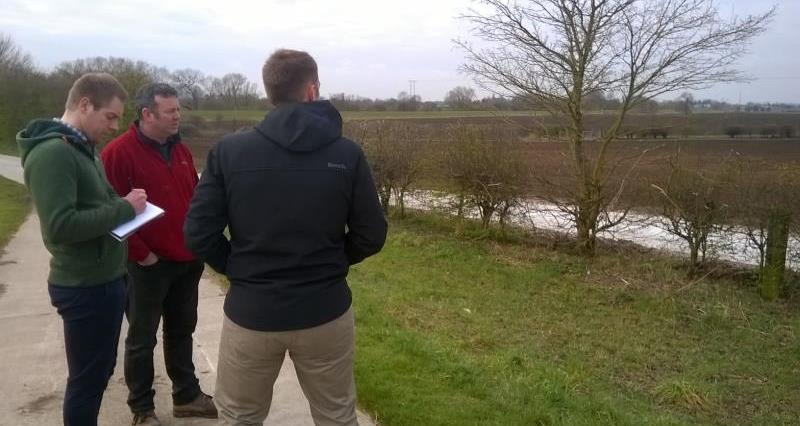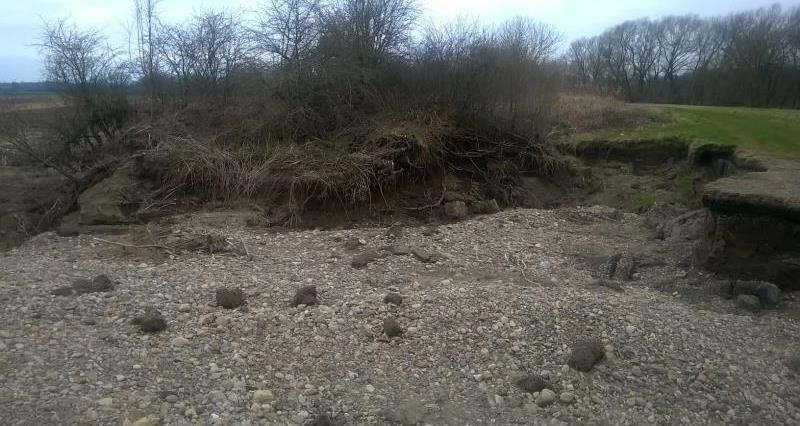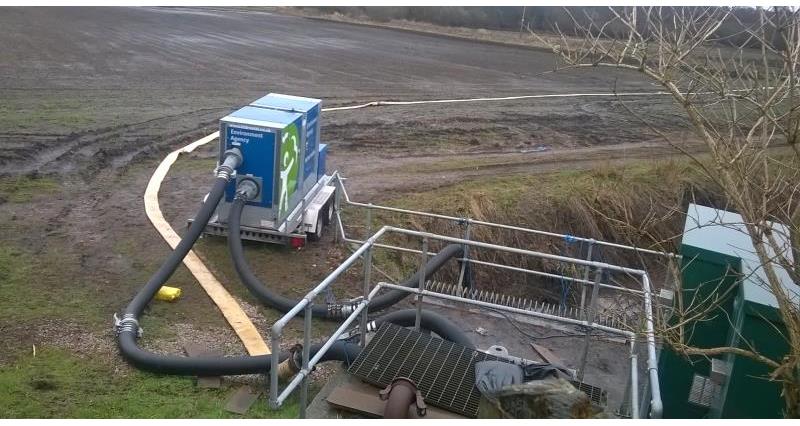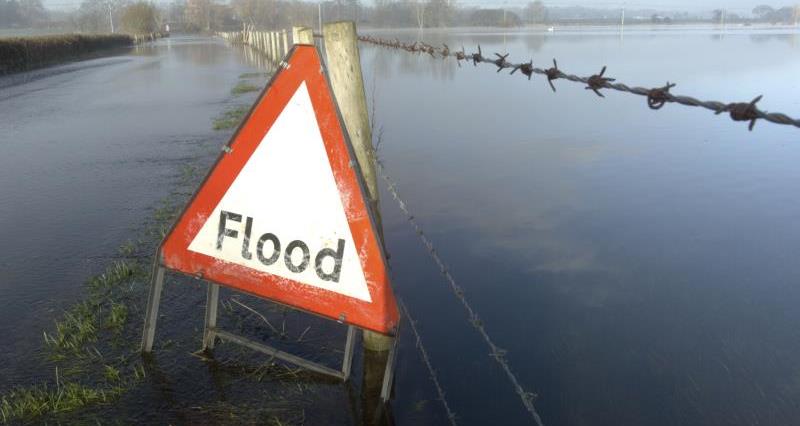She writes:
Having only just started my new role in the environment team, the tour could not have come at a better time. I will be updating the NFU’s Flooding Manifesto and, after this trip, I now understand why it is vital that we keep pressing the government for change.
The NFU’s national flood management and access adviser Martin Rogers and I travelled to York on day one of our trip. First stop was an NFU member’s farm which had been badly flooded eight times in the past ten years. The land we saw had been inundated with water at Christmas which stayed for six to seven weeks. It was devastating to see the losses that were caused not just to his crops but to the wildlife and habitats.
He told me: “There will be no owls here anymore because all the voles have drowned.” This is just one of the examples of how the flooding has a ‘domino effect’ on so much more than just farmland. The land in this area acted as a safety net during the floods to protect the local town of Selby. This member’s farm at peak production alone could produce enough food to feed the population of this town, but yet this does not appear to get acknowledged when valuing farmland.

More of our blogs...
- Why we're arming farmers with marketing materials - Philippa Wiltshire, Red Tractor
- What's in a name when it comes to Tesco branding? - Head of food and farming, Phil Bicknell
- April is the cruelest month - NFU Vice President Guy Smith on BPS
- Supporting dairy farmers through the tough decisions ahead - Chief dairy adviser Sian Davies
- Can we continue to grow oilseed rape in the UK? - NFU plant health expert Emma Hamer
- What could we learn from the Spanish supply chain? - Food chain adviser Christine McDowell
Up in Darlington we saw another NFU member who had been affected by the floods with his foodbank and hedge totally destroyed, and a huge hole created in his field. Gravel, debris and silt had spread around his field which would have been 30 acres of successful wheat crop. This farmer effectively, ‘saved Wilton’, his local town. The service that farmers are providing to protect people and properties just doesn’t get recognised or compensated with current legislation.

One of the most shocking things I found out from this particular visit was that his farmland was designated a flood zone by the Environment Agency, without the farmer having any form of communication or knowledge of this. Communication and co-operation is the key if flood mitigation is to be successful.
In the North West one of the visits that hit home hardest was a local dairy farmer in the Lyth Valley. His home and farm buildings were flooded in December and he and his family are still living in a caravan. Luckily, he did not lose any of his livestock. To make things worse, the Environment Agency is currently looking to withdraw from the management of pumps in the Lyth Valley. The farmer said: “If they go through with it and switch the pumps off, I will have to pull out of dairying.” It is this type of statement that shows just how much impact flooding has on individual businesses and livelihoods.
- See also: Our flooding pages on NFUonline

